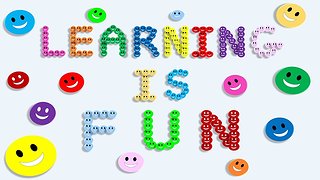課程介紹
This course gives first-year NCHU English majors the opportunity to explore some of the most enduring works of Western Literature from Homer’s epic poems to the Bible stories. Participants are not expected to read these texts in their entirety but selectively and critically. It is designed to introduce the major concerns and conventions of western literary canon whilst encouraging students to think about what makes a literary text ‘classic’ and how it is still relevant to modern readers.
At the end of the course, students will be able to:
(1) become familiar with some of the major authors and issues of Western Literature
(2) understand both Greco-Roman and Judeo-Christian traditions and literary genres
(3) enhance their reading skills and critical thinking through complex literary texts.
(4) develop an understanding of the formal, stylistic, and aesthetic qualities of literary texts.
(1) become familiar with some of the major authors and issues of Western Literature
(2) understand both Greco-Roman and Judeo-Christian traditions and literary genres
(3) enhance their reading skills and critical thinking through complex literary texts.
(4) develop an understanding of the formal, stylistic, and aesthetic qualities of literary texts.
教科書:
Worksheets containing reading comprehension and discussion questions are available via I-Learning
BBC Podcasts:
Homer’s Odyssey: http://www.bbc.co.uk/programmes/b09kqjc0
Ovid’s Metamorphosis: http://www.bbc.co.uk/programmes/p00546p6
Virgil’s Aeneid: http://www.bbc.co.uk/programmes/p003k9c1
BBC Podcasts:
Homer’s Odyssey: http://www.bbc.co.uk/programmes/b09kqjc0
Ovid’s Metamorphosis: http://www.bbc.co.uk/programmes/p00546p6
Virgil’s Aeneid: http://www.bbc.co.uk/programmes/p003k9c1
教學進度:
|
Week 1 (Feb/27)
Introduction Homer’s Odyssey Week 2-8 Ovid’s Metamorphoses Week 10-11 Virgil’s the Aeneid Week 12-16 Week 2 (March/6) Homer’s Odyssey Book 1 Athena Inspires the Prince (pp.291-301) Quiz 1 Week 3 (March/13) Homer’s Odyssey Book 4: The King and Queen of Sparta (pp. 324-338) Quiz 2 Week 4 (March/20) Homer’s Odyssey Book 8: A Day For Songs and Contests (pp. 371-385) Quiz 3 Week 5 (March/27) Homer’s Odyssey Book 9: In the One-Eye’ Giant’s Cave (pp. 385-397) Quiz 4 Week 6 (April/3) Self-Learning Week Week 7 (April/10) Homer’s Odyssey Book 22: Slaughter in the Hall (pp.544-559) Quiz 5 Week 8 (April/17) Homer’s Odyssey Book 23: The Great Rooted Bed (pp.559-568) Quiz 6 Week 9 Mid-term Week 10 (May/1) Ovid’s Metamorphoses Book Pygmalion (pp.1121-1122) Watch the 1938 film ‘Pygmalion’ Week 11 (May/8) Group Presentations on the film ‘Pygmalion’ Week 12 (May/15) Virgil’s Aeneid Book I: Safe Haven after Storm (pp.981-1001) Quiz 7 Week 13 (May/22) Virgil’s Aeneid Book II: The Final Hours of Troy (pp.1002-1024) Quiz 8 Week 14 (May/29) Virgil’s Aeneid Book II: The Final Hours of Troy (pp.1002-1024)
Book IV: The Tragic Queen of Carthage (pp.1025-1043
Week 15 (June/5) From Virgil to Dante Book IV: The Tragic Queen of Carthage (pp.1025-1043)
Introduction to Dante's Inferno (pp.1595-1600)
Canto I (pp.1600-1603)
Quiz 9 Week 16 (June/12) Dante's Inferno Canto II-III, XXVI (pp. 1603-1610, 1686-1690). Quiz 10
Week 17 (June/19) Oral Presentation Week 18 (Final) |
||||
| 學習評量方式 | ||||
| Grades 20% class participation 5 % Group Presentation 10% attendance 65% exams (quizzes 15%, 25% Midterm, 25% Final) Bonus Written Assignment (0-5 points added to your final grade) You have to print out and hand in a reflective essay (250-400 words) by the end of the semester. The topic of your essay is up to you. You can write up your oral report, trace your journey of learning in this course, analyze a short literary passage that interests you or simply find out more about the life of author or a topic. |
本課程不開放報名
